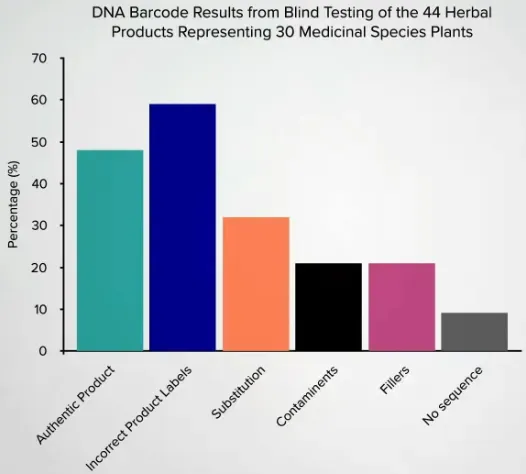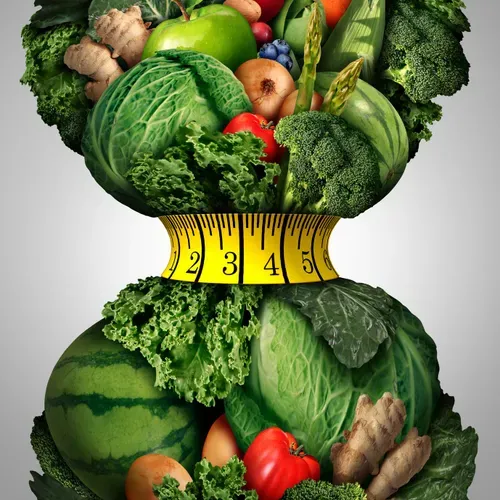The Hidden Dangers of Weight Loss Supplements: What You Need to Know

Key takeaways
- Most weight loss supplements bypass FDA safety and efficacy testing, exposing consumers to unverified health risks.
- Common ingredients like green tea extract or garcinia cambogia can be ineffective or dangerous, especially when mislabeled or adulterated.
- Many supplements contain hidden pharmaceutical drugs or banned substances like sibutramine, despite being marketed as "natural."
- Scientific trials and systematic reviews consistently show minimal weight loss benefits and heightened health risks from supplements.
- Plant-based diets, calorie-dense food swaps, regular exercise, and lifestyle changes offer safer, more sustainable weight loss results.
- DNA testing and investigations have found widespread contamination and misrepresentation in supplements sold by major retailers.
Weight loss supplements are a booming industry, with Americans spending billions of dollars every year in the pursuit of slimming down. Yet, the road to weight loss is littered with misconceptions, safety concerns, and a startling lack of regulation. Contrary to popular belief, most over-the-counter appetite suppressants, herbal products, and weight loss supplements do not undergo rigorous safety testing or efficacy trials before they hit the shelves. This is a critical issue, as many consumers mistakenly believe that these products are vetted and approved by agencies like the FDA, expecting them to be safe and effective.
The reality is starkly different. The FDA estimates that dietary supplements cause about 50,000 adverse events annually, including serious conditions like liver and kidney damage. Despite these alarming numbers, the regulatory framework for these supplements is surprisingly lax. Unlike prescription medications, which require extensive testing and monitoring, dietary supplements often bypass rigorous scrutiny, leading to widespread misinformation and potential health hazards for unwitting consumers.
Weight loss supplements can contain a wide range of ingredients, from common herbs to less well-known chemicals. Some may provide minor benefits, but these often come with significant risks. It is vital to understand the full spectrum of what these supplements entail:
- Common ingredients: Green tea extract, caffeine, garcinia cambogia, and glucomannan.
- Less known ingredients: Yohimbine, synephrine, and various synthetic compounds.
By becoming more informed about what these products contain and the associated risks, consumers can make safer choices in their weight loss journeys.
Common Misconceptions about Weight Loss Supplements
Assumptions About FDA Approval and Safety
One of the most pervasive myths surrounding weight loss supplements is the assumption that they are subject to the same stringent FDA approval process as prescription drugs. Many people believe that these products have been evaluated for safety and efficacy before being sold. However, this is far from the truth. The FDA does not review dietary supplements for safety and effectiveness before they are marketed, leaving consumers vulnerable to potential health risks.
This misconception is not just a minor oversight; it can have serious consequences. People often assume that because a product is available on store shelves or online, it must be safe. This false sense of security can lead to the consumption of products with harmful ingredients, putting users at risk of adverse health effects without their knowledge. For example, ephedra-containing supplements were once widely available until they were linked to serious health risks, including heart attacks and strokes.
The Myth of Proven Effectiveness
Another widespread fallacy is the belief that weight loss supplements are proven to be effective. Nearly half of those who use these products think they have been scientifically validated to help shed pounds. However, rigorous scientific studies and randomized placebo-controlled trials often debunk this myth. Many popular slimming supplements fail to outperform sugar pills, showing no significant impact on body weight.
A systematic review of diet pills corroborates these findings. This comprehensive analysis revealed that none of the commonly used weight loss supplements generated appreciable impacts on body weight without posing undue risks. These results align with similar reviews conducted by reputable institutions like the Weight Management Center at Johns Hopkins, further emphasizing the ineffectiveness of these products.
Key points on the ineffectiveness of weight loss supplements:
- Randomized placebo-controlled trials show no significant impact on body weight.
- Systematic reviews confirm minimal or no benefits compared to placebos.
- Many supplements fail to live up to their marketing claims.
Consumers who rely on these supplements for weight loss may find themselves disappointed and disillusioned, having wasted time and money on products that fail to deliver on their promises.
The Hidden Dangers of Weight Loss Supplements
Adverse Health Effects
The health risks associated with weight loss supplements are far from negligible. The FDA reports thousands of adverse events every year, with some leading to serious conditions like liver and kidney damage. In some extreme cases, supplements have been linked to heart attacks, strokes, seizures, and even deaths. Products containing ephedrine, for instance, were associated with nearly 15,000 adverse effects before being pulled from the market.
Examples of adverse health effects:
- Liver and kidney damage: Commonly reported with various supplements.
- Heart attacks and strokes: Linked to stimulants like ephedra and synephrine.
- Seizures: Reported with products containing high doses of caffeine or other stimulants.
These adverse health effects are often not immediately apparent, making it difficult for users to associate their symptoms with the supplements they are taking. This can lead to prolonged use and worsening health conditions, highlighting the need for greater awareness and caution among consumers.
Ingredients and Labeling Issues
One of the most troubling aspects of weight loss supplements is the frequent mislabeling and contamination of products. Studies have shown that a significant percentage of these supplements do not contain the ingredients listed on their labels. Instead, they often contain cheap fillers like powdered rice or even dangerous substances like laxatives and pharmaceutical drugs.
Common labeling issues include:
- Inaccurate ingredient lists: Missing active components or substituting with cheaper fillers.
- Contaminants: Presence of banned substances and pharmaceuticals not disclosed on the label.
- Misleading marketing: Claims of being "all-natural" while containing synthetic drugs.
This lack of transparency and accountability poses a significant risk to consumers. In one investigation, DNA testing revealed that four out of five bottles of commercial herbal supplements did not contain any of the herbs on their labels. Instead, they were filled with substances that could have harmful effects, such as caffeine, banned stimulants, and even controlled sedatives like Temazepam.
The Role of Government Oversight and Regulation
Lack of FDA Regulation
The regulatory landscape for dietary supplements is notably lax. Unlike prescription medications, which undergo extensive testing and approval processes, dietary supplements are not subject to pre-market FDA approval. This regulatory gap leaves room for a plethora of products to enter the market without any assurances of safety or efficacy. As a result, consumers often unwittingly expose themselves to potential health risks.
Consequences of lax regulation:
- Unvetted products: Supplements hit the market without rigorous testing.
- Consumer vulnerability: Increased risk of adverse health effects.
- Misinformation: Misleading claims about safety and effectiveness.
The FDA does attempt to oversee the supplement market to some extent, but their efforts are often insufficient. Despite the agency's ability to issue recalls for adulterated products, many of these items reappear on shelves with the same hazardous ingredients. The lack of stringent regulatory oversight highlights the need for consumers to exercise caution and due diligence when selecting supplements.
Violations of Good Manufacturing Practices
The situation is further exacerbated by widespread violations of Good Manufacturing Practices (GMP) among supplement manufacturers. GMP is considered the minimum quality standard for production, encompassing essential aspects like sanitation, ingredient identification, and quality control. Astonishingly, FDA inspectors have found that 70% of supplement manufacturers are in violation of these practices.
GMP violations include:
- Poor sanitation: Unsanitary manufacturing conditions.
- Misidentification of ingredients: Incorrect or misleading labeling.
- Lack of quality control: Inconsistent product quality and safety.
Such non-compliance is not limited to obscure, fly-by-night companies. Even well-known retailers like Walgreens, Walmart, and GNC have been implicated. For instance, an investigation commissioned by the New York State Attorney General revealed that four out of five bottles of commercial herbal supplements sold by these retailers did not contain the herbs listed on their labels. This rampant disregard for GMP standards underscores the need for stronger regulatory measures to protect consumers.
Case Studies and Investigations
DNA Testing of Herbal Supplements
DNA testing has unveiled a disturbing reality about the content of many herbal supplements. In North America, a large-scale investigation found that the majority of these products could not be authenticated. In 68% of the supplements tested, the main labeled ingredient was entirely missing and substituted with other substances. For example, a supplement labeled as "St. John's wort" was found to contain nothing but senna, a laxative that can cause severe side effects like anal blistering.
Key findings from DNA testing:
- 68% of supplements: Missing main labeled ingredient.
- Use of fillers: Substitution with substances like senna, powdered rice, and houseplants.
- Major retailers implicated: Walgreens, Walmart, Target, and GNC.
These findings are not isolated to obscure brands or online-only retailers. Major commercial outlets have also been implicated. DNA testing commissioned by the New York State Attorney General discovered that four out of five bottles of herbal supplements sold at Walgreens, Walmart, Target, and GNC did not contain any of the herbs listed on their labels. Instead, they were often filled with cheap fillers like powdered rice and even houseplants.
Specific Examples of Adulterated Supplements
The issue of adulteration is not confined to herbal supplements alone. Weight loss supplements are particularly notorious for being tainted with pharmaceutical drugs. In a sampling of 160 weight loss supplements that claimed to be "100 percent natural," more than half were found to contain active pharmacological ingredients like Prozac and Viagra. Some even included diuretics and banned substances like sibutramine, which was withdrawn from the market in 2010 due to its association with heart attacks and strokes.
Noteworthy cases of adulteration:
- Sibutramine contamination: Found in a significant percentage of weight loss supplements.
- Pharmaceutical additives: Including Prozac, Viagra, and diuretics.
- Banned substances: Continuing presence in the market despite recalls.
Even more alarming is the fact that many of these adulterated supplements are still readily available. Researchers in Denver found that a third of the weight loss supplements they tested within a 10-mile radius were contaminated with banned ingredients. Despite FDA recalls, many of these products remain on the market, putting consumers at continued risk.
The Ineffectiveness of Weight Loss Supplements
Clinical Trials and Research Findings
Scientific research consistently debunks the effectiveness of weight loss supplements. Randomized placebo-controlled trials, the gold standard for clinical testing, have shown that popular slimming supplements often fail to outperform sugar pills. These trials have revealed that many weight loss products do not produce significant impacts on body weight, rendering them ineffective for their intended purpose.
Findings from clinical trials:
- No significant impact: Many supplements fail to outperform placebos.
- Lack of evidence: Little scientific support for weight loss claims.
- Short-term benefits: Often outweighed by long-term health risks.
A systematic review of diet pills corroborates these findings. This comprehensive analysis revealed that none of the commonly used weight loss supplements generated appreciable impacts on body weight without posing undue risks. These results align with similar reviews conducted by reputable institutions like the Weight Management Center at Johns Hopkins, further emphasizing the ineffectiveness of these products.
Systematic Reviews
Systematic reviews provide a broad perspective on the overall effectiveness and safety of weight loss supplements. These reviews aggregate data from multiple studies to offer a more comprehensive understanding of the subject. The consensus from these reviews is clear: weight loss supplements do not deliver meaningful results and are often associated with significant health risks.
Conclusions from systematic reviews:
- Limited effectiveness: Supplements show minimal impact on weight loss.
- Health risks: Potential for adverse effects outweighs benefits.
- Scientific consensus: Similar findings across multiple studies.
For instance, a systematic review conducted by the Weight Management Center at Johns Hopkins concluded that weight loss supplements are largely ineffective and pose potential health hazards. The review highlighted that none of the supplements studied had a significant impact on weight loss without compromising safety. These findings serve as a cautionary tale for consumers seeking quick fixes through dietary supplements.
Safer Alternatives for Weight Management
Plant-Based Diets and Calorie Density
Amid the disillusionment with weight loss supplements, plant-based diets emerge as a promising alternative. Research suggests that substituting low-calorie density foods, such as whole plant foods, for high-calorie density and processed foods can effectively aid in weight management. This approach allows individuals to consume larger volumes of food while still reducing their overall calorie intake.
Benefits of plant-based diets:
- Nutrient-rich: High in vitamins, minerals, and antioxidants.
- Low-calorie density: Promotes fullness and reduces overall calorie intake.
- Health benefits: Reduces risk of chronic diseases.
The benefits of plant-based diets extend beyond weight loss. These diets are rich in nutrients and can help reduce the risk of chronic diseases, including heart disease, diabetes, and certain cancers. By focusing on whole, unprocessed foods, individuals can achieve sustainable weight loss without compromising their nutritional needs or overall health.
Lifestyle Changes Over Supplements
While the allure of quick fixes through supplements is tempting, lifestyle changes offer a more effective and sustainable approach to weight management. Incorporating regular physical activity, adopting healthy eating habits, and prioritizing sleep and stress management are all critical components of a successful weight loss strategy.
Key lifestyle changes for weight management:
- Regular exercise: Enhances metabolism and supports weight loss.
- Balanced diet: Emphasizes whole foods and nutrient-dense choices.
- Adequate sleep: Supports overall health and weight management.
- Stress reduction: Promotes emotional well-being and reduces overeating.
These lifestyle changes not only contribute to weight loss but also improve overall well-being. Unlike supplements, which often come with risks and limited efficacy, adopting healthier habits provides long-term benefits and reduces the likelihood of adverse health effects. By focusing on holistic, sustainable practices, individuals can achieve their weight loss goals in a safe and effective manner.
Conclusion: Making Informed Choices
Evaluating the Risks and Benefits
When considering weight loss supplements, it's crucial to weigh the potential risks and benefits carefully. While some supplements may offer short-term results, the long-term health risks often outweigh the benefits. Consumers should be skeptical of products that make bold claims without solid scientific backing and always prioritize their safety and well-being.
Steps to evaluate supplements:
- Research ingredients: Understand what you're consuming and potential risks.
- Consult healthcare professionals: Seek advice from qualified experts.
- Stay informed: Keep up with regulatory updates and recalls.
Research and due diligence are essential when navigating the world of dietary supplements. Consult with healthcare professionals, review credible scientific studies, and stay informed about regulatory updates and recalls. Making informed choices can help avoid the pitfalls of ineffective and potentially dangerous weight loss products.
Prioritizing Safe and Sustainable Practices
Ultimately, the safest and most effective path to weight loss lies in sustainable lifestyle changes rather than reliance on supplements. Embrace a balanced diet rich in whole, plant-based foods, incorporate regular physical activity, and maintain a holistic approach to health and wellness. These strategies not only promote weight loss but also enhance overall quality of life.
Safe and sustainable practices:
- Whole-food diet: Focus on unprocessed, nutrient-dense foods.
- Physical activity: Regular exercise tailored to individual preferences.
- Holistic health: Consider mental, emotional, and physical well-being.
By prioritizing safe and sustainable practices, individuals can achieve their weight loss goals without compromising their health. The journey to a healthier lifestyle may require time and effort, but the long-term benefits far surpass the fleeting promises of weight loss supplements. Make informed decisions, prioritize your well-being, and embrace a holistic approach to health for lasting results.
References:
- Austin SB, Yu K, Liu SH, Dong F, Tefft N. Household expenditures on dietary supplements sold for weight loss, muscle building, and sexual function: Disproportionate burden by gender and income. Prev Med Rep. 2017;6:236-241.
- Marcus DM. Dietary supplements: What's in a name? What's in the bottle?. Drug Test Anal. 2016;8(3-4):410-2.
- Starfield B. Is US health really the best in the world?. JAMA. 2000;284(4):483-5.
- Center for Drug Evaluation and Research. Drug approval process. U.S. Food and Drug Administration.
- Boozer CN, Nasser JA, Heymsfield SB, Wang V, Chen G, Solomon JL. An herbal supplement containing Ma Huang-Guarana for weight loss: a randomized, double-blind trial. Int J Obes Relat Metab Disord. 2001;25(3):316-24.
- Crosse M. Dietary Supplements Containing Ephedra: Health Risks and FDA's Oversight. 2003;202:512-7119.
- Long J. FDA GMP inspectors cite 70% of dietary supplement firms. Natural Products INSIDER. Published May 20, 2013.




